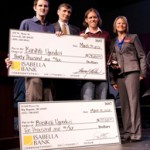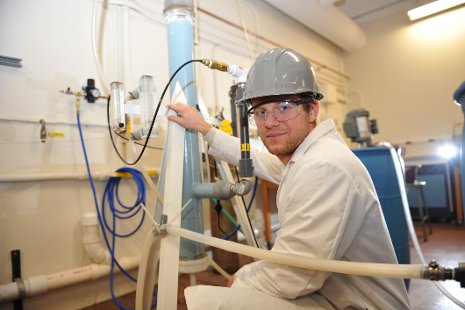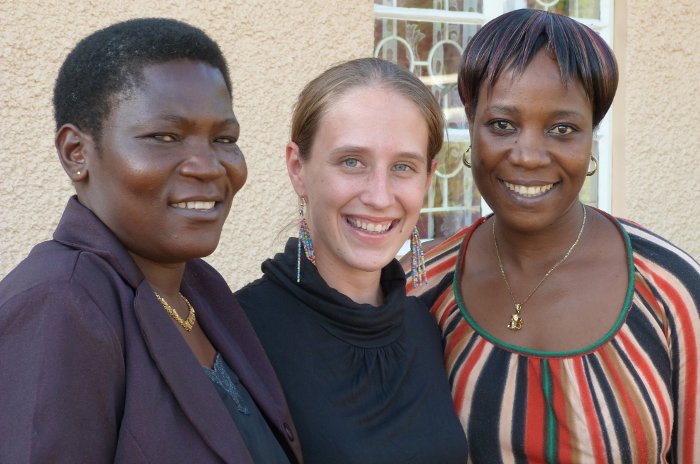Four Michigan Tech students have received graduate research fellowships from the National Science Foundation (NSF). Six other Tech students received honorable mentions in the competition. Nationwide, the NSF awarded 2,000 fellowships and 1,835 honorable mentions.
Mark Hopkins, (graduate student) mechanical engineering-engineering mechanics; Brennan Tymrak, mechanical engineering-engineering mechanics and Peace Corps Master’s International; Jennifer Fuller, civil and environmental engineering; and Liz Cloos, electrical and computer engineering, received NSF fellowships for graduate study. Bryan Plunger (graduate student, mechanical engineering-engineering mechanics), Alan Olds, Evan Lucas, Hilary Morgan (graduate student, geology), Byrel Mitchell (graduate student, mechanical engineering-engineering mechanics) and Patrick Bowen (graduate student, materials science and engineering) earned honorable mentions.
NSF graduate research fellowships recognize and support outstanding graduate students in science, technology, engineering and mathematics (STEM) disciplines who are pursuing research-based master’s and doctoral degrees. The fellows receive a $30,000 annual stipend for three years, plus international research and professional development opportunities and supercomputer access. Each fellow’s institution receives a $12,000 allowance.
“This group is exceptional and well deserving of the awards and honors,” said Jodi Lehman, coordinator of sponsored programs enhancement. Lehman worked closely with the NSF graduate research fellowship applicants. “Their success is also largely due to faculty and administrators who are committed to providing our students with the challenging academic experiences, innovative research, leadership training, and local and global outreach opportunities that make Michigan Tech applicants competitive.”
by Jennifer Donovan, director, public relations
Published in Tech Today


